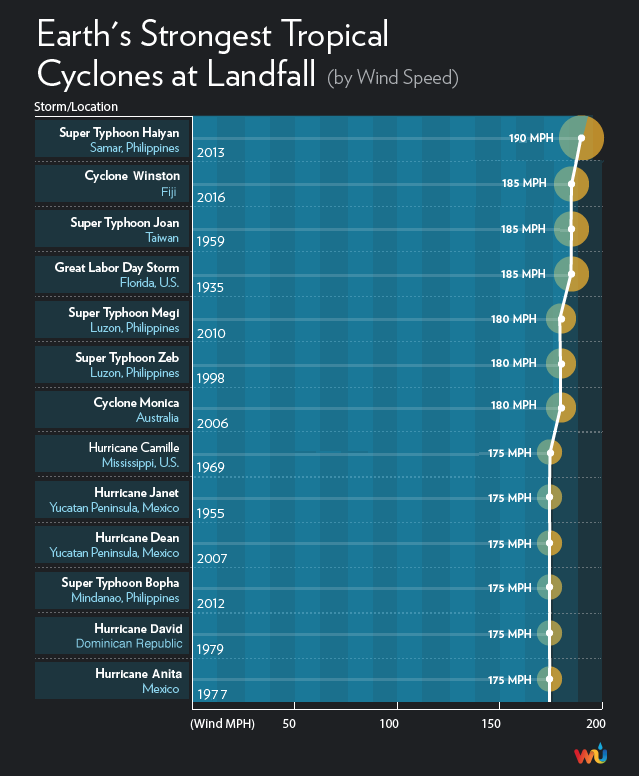Cyclone Winston, a category-5 storm with wind gusts reaching 300km/h, struck Fiji last weekend leaving 44 people dead, 45,000 people displaced, 350,000 directly impacted and $650 million worth of damage.
According to Weather Underground, Winston is among the strongest tropical cyclones to make landfall in world recorded history, and the strongest recorded in the Southern Hemisphere.

While it’s difficult to determine the exact impact that climate change may have had on Cyclone Winston, here is some general information about tropical cyclones and climate change – and you can read more in our Briefing Statement on Cyclone Pam.
What’s the influence of climate change on tropical cyclone impacts?
The most direct influence of climate change on the impacts of tropical cyclones is via coastal flooding. Typically the damage from tropical cyclones comes from:
- Excessively high winds that directly damage built infrastructure and the natural environment; and
- Coastal flooding caused by a storm surge, and the heavy rainfall that often accompanies the storm.
What is a storm surge?
A storm surge is a rise above normal sea level resulting from strong onshore winds and/or reduced atmospheric pressure. Storm surges, which accompany tropical cyclones, can cause extensive flooding of coastal areas. The area of sea water flooding may extend along the coast for hundreds of kilometres, with water pushing several kilometres inland if the land is low‐lying. The worst impacts of a storm surge occur when it coincides with a particularly high tide.
How are storm surges affected by global sea level rise?
The rise of sea levels globally because of climate change – due to warming oceans and melting ice sheets – means that storm surges are now riding on higher sea levels than they were earlier, increasing the extent and severity of flooding damage from cyclones and other weather systems than can drive storm surges.
What about increasing ocean temperatures?
The increasing temperature of the surface of the ocean affects the intensity of cyclones because the storms draw energy from the surface waters of the ocean. This can increase wind speed and trigger more intense rainfall.
What are the impacts of tropical cyclones on Pacific Islands?
Climate-related disasters now account for over 80% of all disaster events globally, and the Asia-Pacific region is particularly vulnerable with over half of the world’s natural disasters occurring in the Asia-Pacific region last year.
Many Pacific island communities are extremely low-lying and are therefore among the most vulnerable to sea-level rise and storm surges. Cyclone Winston is the most recent reminder that cyclones produce devastating winds, heavy rainfall and storm surges that can create chaos for low‐lying coastal areas. This storm followed recent cyclones that have had devastating impacts on Pacific Island countries, including Cyclone Pam in 2015, Cyclone Sandra in 2012 and Cyclone Evan in 2012.
What’s the outlook for tropical cyclones?
In general, tropical cyclones are projected to become more intense but less frequent. However, the influence of climate change so far on the nature of tropical cyclones themselves is less well known, in part due to limited and inconsistent datasets of cyclone behaviour over the past several decades.
What can we do?
We need deep and urgent cuts in greenhouse gas emissions if we are to avoid the most serious risks from rising sea levels, coastal flooding and cyclones.
To prepare for the sea‐level rise that we can’t prevent, and the impacts associated with storm surges on the back of tropical cyclones, it is essential to lower the risks of coastal flooding. This requires a coordinated planning framework across Pacific Island nations that are often in the path of cyclones, as well as coordination with countries, such as Australia and New Zealand, contributing long-term aid as well as short‐term emergency management support.
What can you do to help the people of Fiji?
Head to the ABC Appeals website for information on how you can help.
Image credit: Fijian Government Facebook